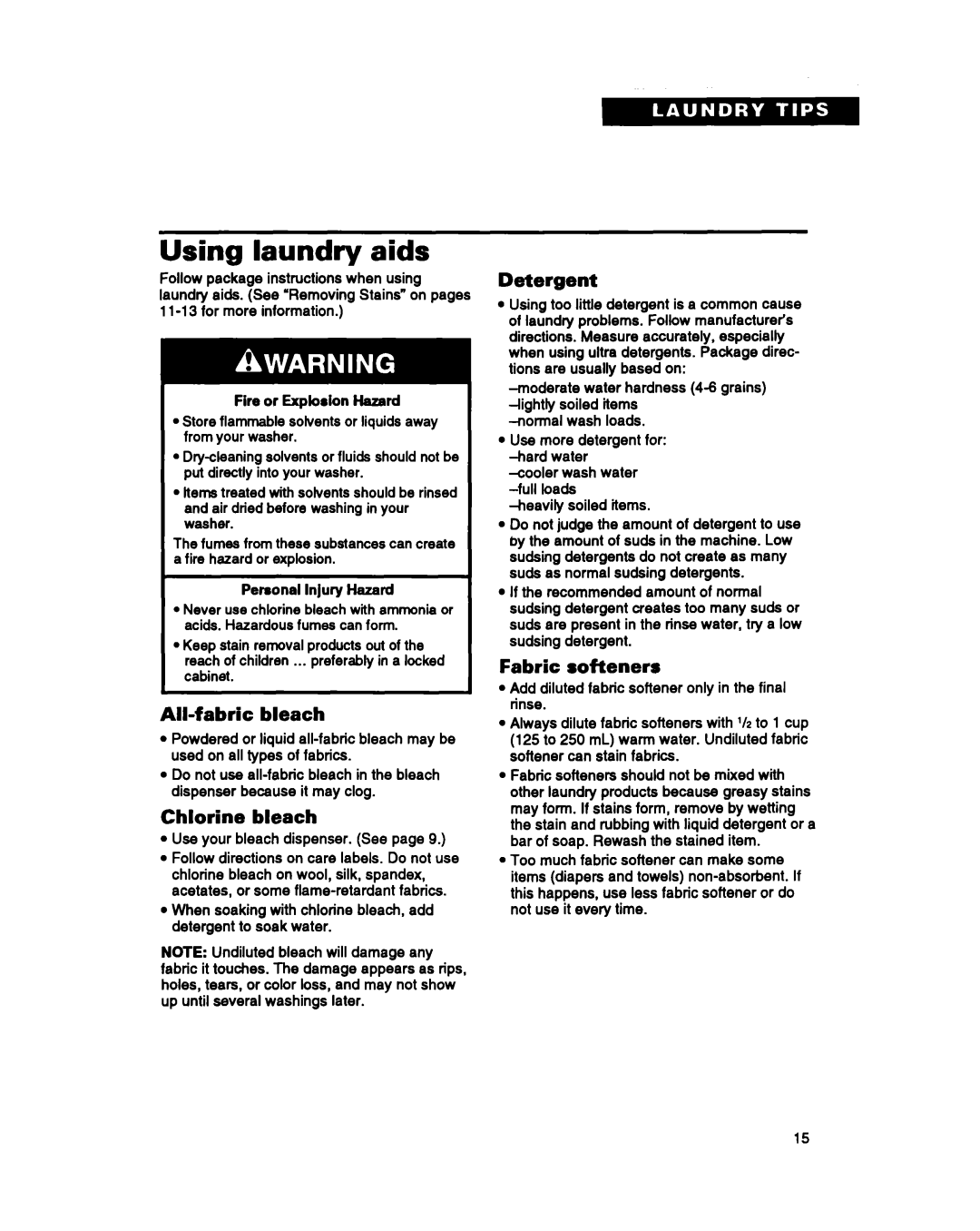
Using laundry aids
Follow package instructions when using laundry aids. (See “Removing Stains” on pages
Fire or Expbslon Hszsrd
lStore flammable solvents or liquids away from your washer.
l
litems treated with solvents should be rinsed and air dried before washing in your washer.
The fumes from these substances can create a fire hazard or explosion.
Personal Injury Hazard
lNever use chlorine bleach with ammonia or acids. Hazardous fumes can form.
lKeep stain removal products out of the reach of children ... preferably in a locked cabinet.
L
All-fabric bleach
lPowdered or liquid
lDo not use
Chlorine bleach
lUse your bleach dispenser. (See page 9.)
lFollow directions on care labels. Do not use chlorine bleach on wool, silk, spandex, acetates, or some
l When soaking with chlorine bleach, add detergent to soak water.
NOTE: Undiluted bleach will damage any fabric it touches. The damage appears as rips, holes, tears, or color loss, and may not show up until several washings later.
Detergent
lUsing too little detergent is a common cause of laundry problems. Follow manufacturets directions. Measure accurately. especially when using ultra detergents. Package direc- tions are usually based on:
lUse more detergent for:
lDo not judge the amount of detergent to use by the amount of suds in the machine. Low sudsing detergents do not create as many suds as normal sudsing detergents.
lIf the recommended amount of normal sudsing detergent creates too many suds or suds are present in the rinse water, try a low sudsing detergent.
Fabric softeners
lAdd diluted fabric softener only in the final rinse.
lAlways dilute fabric softeners with l/z to 1 cup (125 to 250 mL) warm water. Undiluted fabric softener can stain fabrics.
lFabric softeners should not be mixed with other laundry products because greasy stains may form. If stains form, remove by wetting the stain and rubbing with liquid detergent or a bar of soap. Rewash the stained item.
l Too much fabric softener can make some items (diapers and towels)
15
